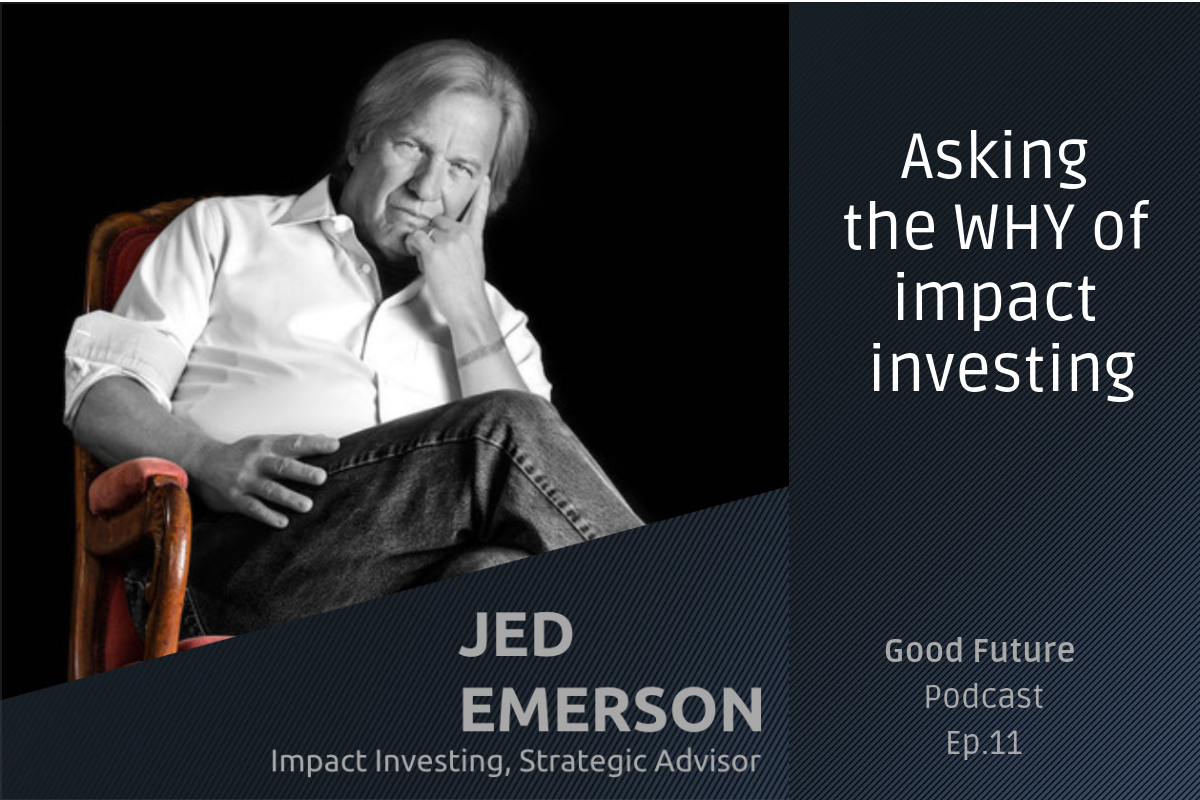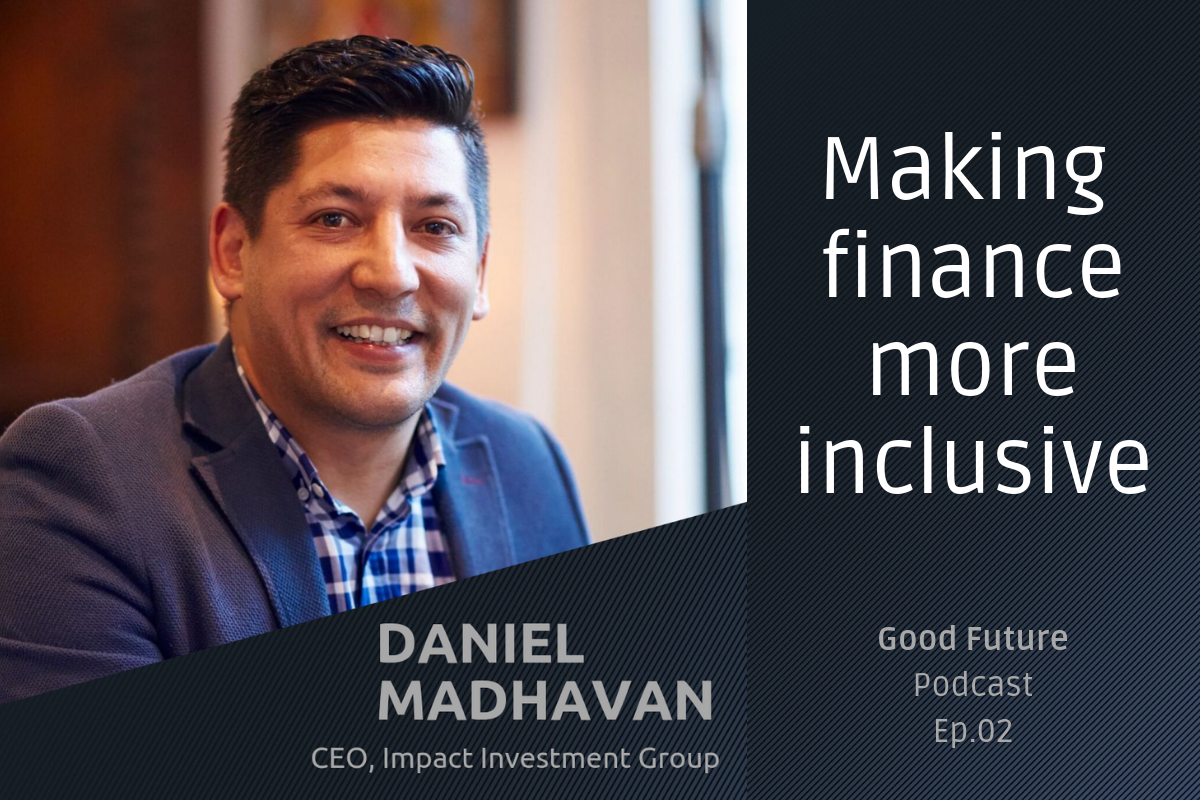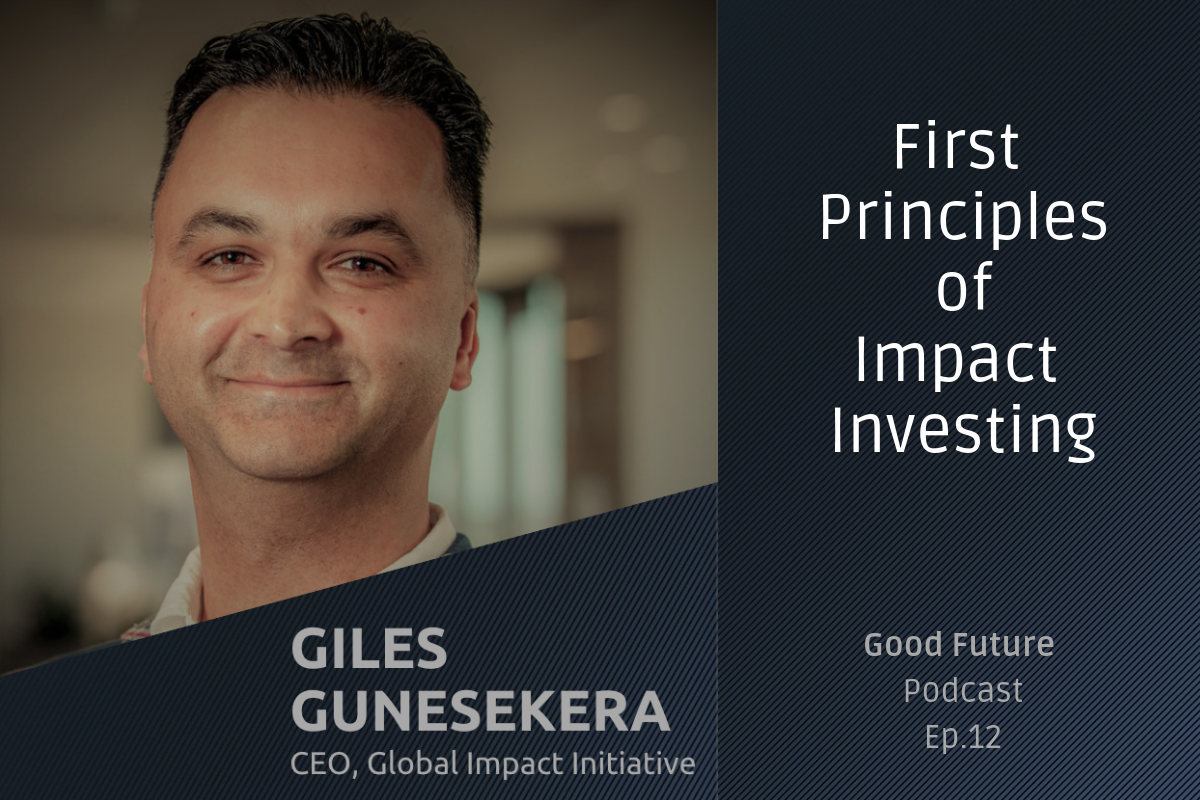Is Impact-investing a paradox? Is another complex financial structure really the best way to deal with the problems caused by putting too much faith in finance in the first place?
Jed Emerson knows this challenge well. He’s been at the forefront of impact investing’s evolution for many decades, and in his new book he asks us all to think far deeper than simply which fund structure will optimise gains, instead, he wants us to question what is the purpose of capital anyway? At the heart of it, why are we doing this. If it’s simply to alleviate our guilt for extracting profits then that’s not enough.
Listen on iTunes
Listen on Soundcloud
On this episode…
We didn’t talk about the latest fund structures, we didn’t even discuss impact metrics, instead we looked back at history with the hunch that other people, in another time, have surely faced the same problems that we’re dealing with now.
Jed is well-read, but that’s an understatement. The bibliography at the back of his book should probably have its own barcode. Jed is endlessly inquisitive and he’s done the reading so we don’t have to. While the terminology around impact investing may be new, the concepts are not. And Jed helps us understand that it’s a very sound and well-worn tactic to take environmental and social concerns into consideration when planning your investments, and indeed your society.
My key takeaway this week…
Part of changing the world requires that we change ourselves.
Good Future’s Good Books
“Many of these are books I set out to write myself, but then I discovered they’d already been written. So it kind of takes you back to the drawing board each time.” Jed says.
By Thomas Sedliczech
By Karen Armstrong
“She is a religious historian and wrote this book to explore the interplay between religion and economics, and basically all of the dynamics there.”
Giles Hutchison
“He’s a business strategist, and has a good blog series.”
Also… read the classic philosophers. They all have parts of an answer that will help.
Links
Do check out Jed’s book HERE
Follow us…
The Good Future Instagram is pretty great, check it out over HERE
My Twitter is over HERE
And you can get me on LinkedIn HERE






